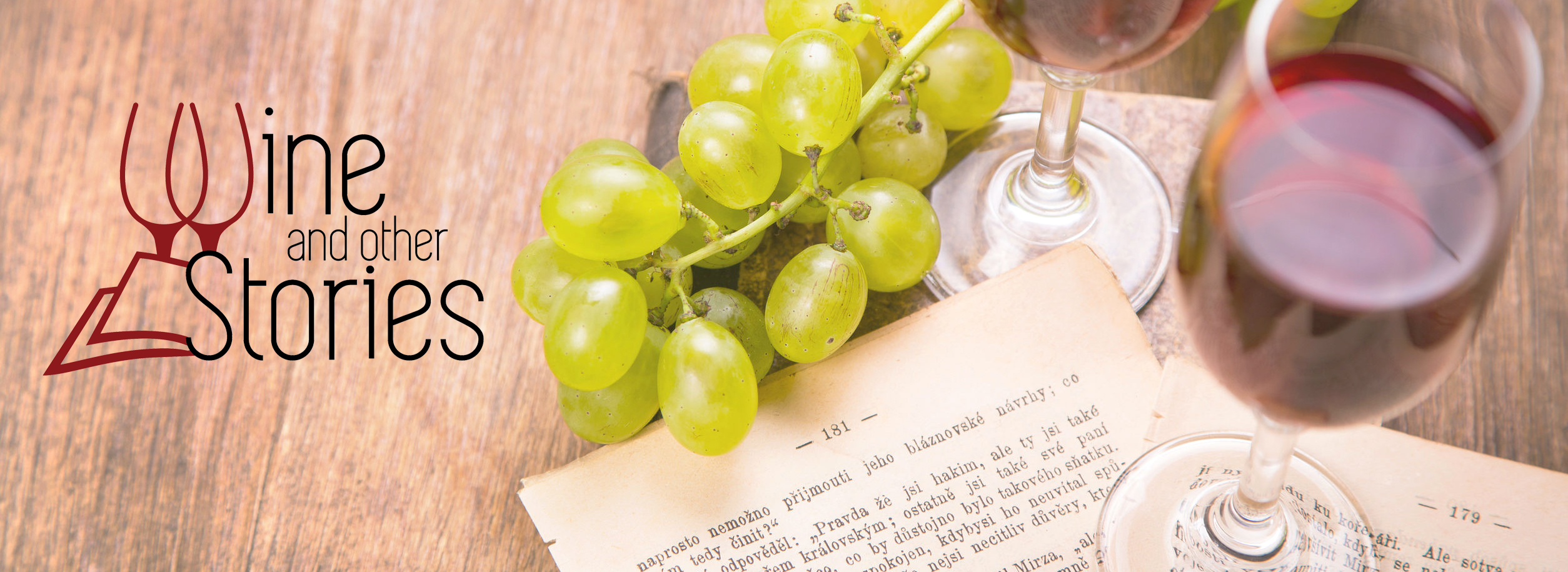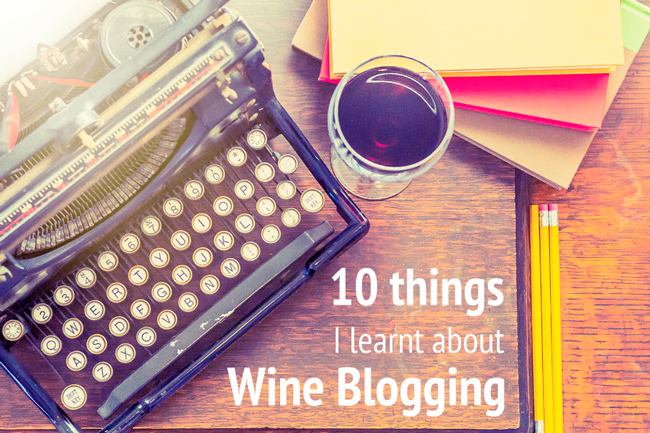My first year of blogging about wine was full of interesting novelties with big and small discoveries. Here’s what the wine world looks like from the perspective of a blogger newbie. My personal list of the 10 things I learned about wine blogging in 2019
In December people love to write lists. The wine world is no exception. If you look around, you will find plenty of “top X wines of the year”, “the best red/wine/sparkling wines tasted in 2019”, “the best X wines to try for Christmas”, and so on.
I opted for a slightly different top 10. Today is an anniversary of sorts. I officially started Wine and Other Stories in February this year. However, my preparation began a number of months earlier. So, in reality, I have been running this online space for almost an entire year. As such, I’ve decided to share with you the 10 things I learned wine blogging in 2019.
One year of blogging may not seem a long time to you. Nor do I consider myself an expert. However, I did learn a thing or two and I’m happy to share my experience for two reasons. Firstly, this article might serve those people that are in the same position I was roughly a year ago – when I was thinking of opening a wine blog. Secondly, I’d like to give you an idea of what the wine world is like from the perspective of a small blogger.
Without further ado, here’s my list of 10 things I learned wine blogging in 2019.
1) Writing is a (very small) part of the job
I mention this fact at the top of my list since it’s the most brutal lesson I had to learn. As everybody keeps stressing, writing consistently good content is the cornerstone of a successful blog. While I have no doubt about that, writing is only one part of the job – and not the biggest part by any stretch. There are countless other tasks to address.

2) It’s more time consuming than you think
That is the main implication of point 1. Wine blogging (but that is true for every kind of blogging I suppose) is time consuming.
You have to come up with original ideas, study the topics you want to talk about, write your first draft and subsequent versions until you reach something half-decent. Then you should get your content edited (I thank my partner for that; without her, my articles would be littered with horrible mistakes!). You also need to curate the layout of your blog posts, select the media to use, manage your platform and all the software involved. Then, advertisement! You want to make your content visible to the public. This encompasses taking care of your social media channels. Sharing your posts, building a network of peers, replying to comments and questions, envisioning and implementing a marketing strategy and so on.
3) Each social channel is its own beast
With social media, I soon realised that different channels vary greatly in nature and it makes little sense to treat them all in the same way. Twitter is geared towards wine geeks and professionals, while Facebook is used more by neophytes and uncommitted wine lovers. Instagram, being based more on the visual aspect, is apt for the exhibitionist aspect in us (can I say that without offending anyone?). It would be a good strategy to either share different content on different platforms, or adapt the content to make it more palatable to its target audience.

4) Wine is a niche and traditionalist topic
In media, wine is a niche topic. As far as I know, there’s nobody that can boast millions of followers. A handful of eminent personalities have at best hundreds of thousands of followers. The others, considerably less. I also find that wine is somehow a traditional world. People tend to trust consolidated and long-established authorities. If you are a fresh and unconventional voice it’s harder to be heard. By the way, that’s not a criticism. Rather an observation of how things work in the wine world – or at least my impression so far.
5) You have to love what you do
This might come as an obvious statement, but I do like to stress this aspect. If you look at point number 1, 2 and 4 above, a grim scenario emerges. A blogger spends a lot of energy and time producing something that (especially at the beginning) will only enjoy a scarce number of views. Therefore, the only way to preserve your mental sanity is to love what you do. Luckily, that’s always the case for me!
6) What is going to be successful is not always what you think
I had high hopes about a couple of series I wrote here on Wine and Other Stories. I believed they would be very successful and drive a lot of traffic towards my site. To my great frustration, they were almost a fiasco. On the other hand, I wrote some articles (for examples the Chianti history or the Alsace series) I didn’t think much of, but they were largely praised and visited.
What works is not always what you expect. Most books about blogging derive a natural lesson from the above. Take into account what your audience wants first. The implication seems to be: write what your readers want as opposed to what you want. I’m not sure I agree on this principle, since I like the freedom of writing whatever I want on my blog – after all, it is my personal space. But it’s helpful to recognise that there can be a difference between what you (as the author) like and what your audience finds interesting.

7) Most wineries are not interested in wine bloggers
I’ve written a few articles describing wines that I particularly enjoyed, especially when I found a nice story behind the bottle. The only motivation was to share my love for that particular wine with my readers. I never received or expected compensation or any incentive for what I wrote. Nevertheless, only in a couple of circumstances did I receive a warm thank you – in the form of an email (the nicest one came from Mr. Gerardo Giuratrabocchetti for this article) or a personal message on the social. On a few occasions I was given a simple “like”. But mostly the producers ignored my posts in which I praised their wine. I appreciate that I’m a Mr. Nobody in the wine world. However, I do believe those wineries missed an opportunity. They turned down a gift (albeit a small one), in the form of free advertising. This subject is addressed in a well-written article by Amber LeBeau.
I’m only sharing my personal experience. I don’t write articles to receive thank you letters or gain a broader visibility. My drive for writing about wine is to tell their story and share the emotions I felt. I will continue to give accolades to the wines and wineries that have moved me even if I keep being ignored.
8) People are generally nice in the wine world
I have the feeling that my comments so far may have discouraged some prospective wine bloggers. Ok, it’s about time to give you some good news. I find that most people that work in the wine industry, or who are otherwise seriously interested in wine, are nice, supportive and open. Helpful when you need some information and quick to correct any inaccuracies that may slip into the blog. The perfectionist within me appreciates those wine enthusiasts.
Of course, there are few exceptions (for instance, a wine blogger once sent me an angry Twitter DM since I dared to tag him on a post… about wine!), but they remain what they are: exceptions. Most people out there are nice.

9) Wine snobbism is mainly a myth
This naturally follows from my previous point. In my experience, the vast majority of wine experts and bloggers are people genuinely interested in wine and as such they have no will or interest to act pretentiously. This mindset remains the same irrespective of the person’s level of popularity: from the guy having a handful of followers on Twitter to the universally recognised wine guru. There may be very limited exceptions… But hey! No place is perfect, right?
10) The wine industry would benefit from more inclusion
I’d like to end my list of 10 things I learned from wine blogging in 2019 with a delicate topic. The question of inclusion in wine is something that arises every now and then. I personally think it’s a valid concern and one that needs to be addressed. For example, how many black wine experts do you know? What about black people in wine advertisements? Somebody has posed these questions, but unfortunately so far I haven’t seen (yet) a serious discussion about the topic. Perhaps it’s about time?

With just one year of serious blogging so far, I’m clearly still at the beginning of my journey. But jumping into blogging exposed me to the wine world in a different way. A huge universe unfolded in front of my eyes. In this article I tried to summarise the most vivid lessons that emerged during my first year of wine blogging.
I would love to hear the opinions of other people in a similar situation. Did you have the same perceptions? Do you agree with my list of the 10 things I learned wine blogging? Please share your experience by leaving a comment below or sending me a message on social media.


Very inspiring and some hard to swallow truths
Thanks for your feedback Ivan! I hope I didn’t offer an excessively grim picture of wine blogging, since it’s something that I greatly enjoy… What are the points that you sympathise with?
As a wine blogger for over 8 years, I can relate to what you write.
However, after a good time you will earn your place and suddenly doors start to open up.
I get invitations for very interesting tastings, masterclasses, and so on. I always (try to) write an article about those events and I send a message to the organisation to let them know when it’s online. They appreciate that!
Besides that, I love that I can write about wine. Just as you do.
Oh yeah: black wine expert: http://mowse.blogspot.com/
Highly recommended!
Hello vriendenvanderiesling!
It’s great to hear your feedback on this topic. I have the feeling that you are right. And I agree with you… the best of the pleasures is to write about wine… a world that we both love!! 🙂
Thank you for the recommendation, I’ve added Mowse to the wine blogs I follow 🙂
By the way, Happy Christmas and I hope you are fully enjoying your holiday period!
Merry Xmas and HAppy New Year to you too!. I’ve added your blog to the “things I read” page on my blog too.
Do feel free to check out my blog on riesling (as you probably guessed): https://vriendenvanderiesling.wordpress.com/
and on all other wines: https://wijnkrabbels.wordpress.com/
In Dutch, but there’s always Google Translate to help 😉